January 14, 2019 95 Comments
You’ve probably heard of ‘deworming’ at your doctor’s clinic or from your child’s school. Many of us think of deworming as unnecessary, as something that only those in rural areas need. However, this couldn’t be further than the truth. Here is a complete guide on everything you need to know on how to deworm kids.
Buy Homemade Baby & Toddler Food from a Doctor Mom's KitchenOrganic · FSSAI Certified · NABL Lab certified Buy Sprouted Sathumaavu Health Mix powder for Babies / Homemade Cerelac Dry Fruits Powder for Babies/Toddlers Pancake Mixes for Toddlers
The Ministry of Health and Family Welfare, Government of India, has declared 10th February as National Deworming Day. The aim of this initiative is to make every child in the country from ages 1-19 years worm free. The campaign uses schools and Anganwadi Centers to ensure every child is covered, so they can live a health life without compromising on education.
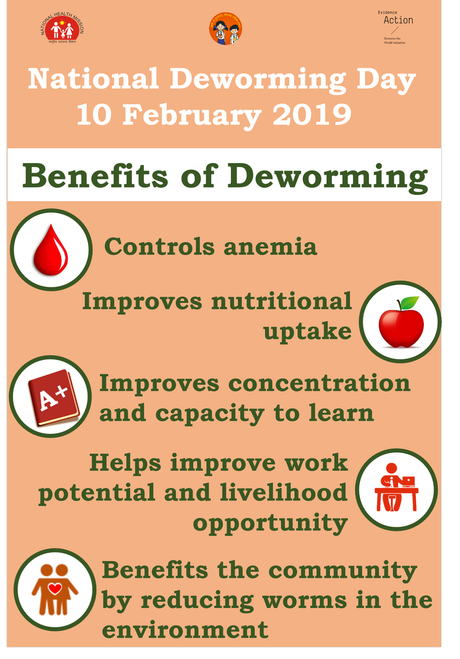
Worm infestation is an endemic in India, which has the highest burden of parasitic worms in the world. According to World Health Organization, 241 million children between the ages of 1 and 14 years are at risk of parasitic intestinal worms in India, out of the total 836 million children at risk worldwide. These worms can lead to anemia and malnourishment, which in turn affects physical and mental development.
It lives in human intestines and consume nutrients meant for the human body. They produce thousands of eggs each day, which are passed in faeces and spread to others in areas used for public toilet
How does a worm infestation occur?
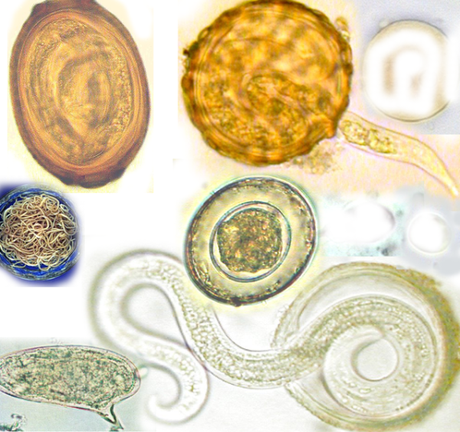
When we speak of a worm infestation, we are referring to worms called helminths. When they are transmitted through soil contaminated with fecal matter, they are called Soil Transmitted Helminths (STH) or intestinal parasitic worms.
Other kinds of worms that infect humans are roundworm (Ascaris lumbricoides), whipworm (Trichuris trichiura) and hookworms (Necator americanus and Ancylostoma duodenale).
A worm infection can occur when you ingest a worm, its larvae or even its eggs. The infection is transmitted by eggs excreted in human feces which contaminate areas that lack adequate sanitation. This can happen through the following ways:
- Drinking contaminated water
- Eating undercooked food (especially meat like pork) or food contaminated with worm eggs and feces
- Eating fruits or vegetables that are not properly washed or peeled
- Using utensils contaminated with worm eggs or feces
- Handling of infected pets
- Through unwashed hands, particularly when contaminated with worm eggs or feces
- By direct entry through the skin by walking barefoot
Adult worms live in human intestines for food and survival and produce thousands of eggs each day, which pass in human feces. Infected people who defecate outdoors spread worm eggs in the soil.
What are the effects of a worm infestation?

Worms living in the intestines feed on body organs including blood, due to which the infected person doesn’t get the nutrients he or she needs. Children with a worm infestation may show the following symptoms:
- Reduced concentration in school
- Difficulty doing daily tasks
- Loss of appetite and reduced food intake
- Loss of weight
- Abdominal pain
- Redness or rash around the anus
- Diarrhea
- Reduced physical and mental development
- Deficiency of iron, protein and Vitamin A
A worm infestation can be confirmed with a fecal test, endoscopy, blood test, tape test or other imaging tests.
How to Deworm Kids?
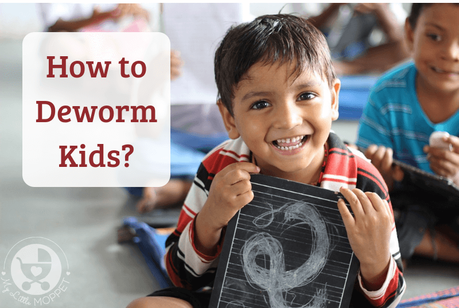
Deworming is a prophylactic measure to prevent children from getting infested with worms in the first place. The WHO recommends periodic treatment with antihelminthics (drugs which treat worm infestation) without individual diagnosis to all children who are at risk (living in an endemic region). According to the WHO, preschool children (2-5 years of age), school-age children and pregnant women (second and third trimester) in developing countries are at risk and can benefit from deworming.
Medicines for Deworming
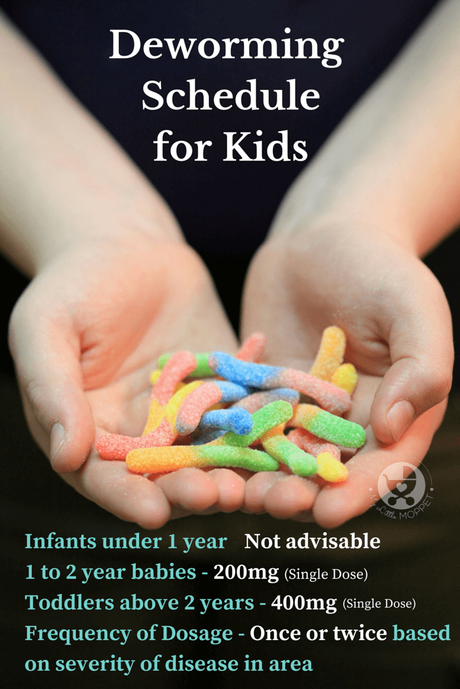
The medicine used for deworming is Albendazole.
- Infants under 1 year should not be dewormed.
- For children under the age of 13 to 23 months, the dosage is 200mg. (single dose)
- For children above 2 years of age, the dosage is 400mg. (single dose).
- The dosage can be given once or twice in a year according to the severity of the disease prevalent in your area.
- Deworming is safe with least side-effects, ensure that your children are dewormed at least once in a year to prevent Helminthiasis. (worm infestation)
Home Remedies for Deworming
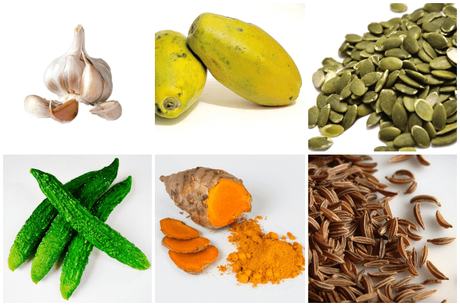
1. Garlic – Crush two cloves of garlic and add to milk. Boil the milk, strain and drink every morning.
2. Raw Papaya – Grate some raw papaya and blend. Mix a tablespoon each of the grated papaya and honey and mix into warm milk. Drink every morning on an empty stomach.
3. Pumpkin Seeds – Boil pumpkin seeds in water for a few minutes. Cover and let it steep. Drain and drink.
4. Bitter Gourd – Mix freshly juiced bitter gourd with honey and warm water and drink a couple of times a day.
5. Neem – Make a paste of neem leaves and mix into a glass of warm water. Drink every morning on an empty stomach.
6. Turmeric – Mix a little turmeric in a glass of buttermilk and drink every day.
7. Carom Seeds/Ajwain – Boil a spoon of ajwain seeds in water for 4-5 minutes. Strain, cool and drink a few times a day.
Please remember that these home remedies are not a substitute for prescription medications.
Ways to Prevent Worm Infestation
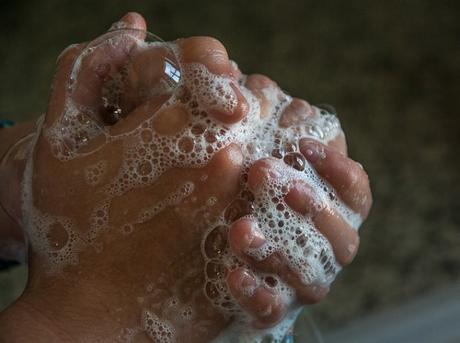
- Ensure proper hand hygiene, washing hands before eating and after using the toilet
- Let kids wash their hands for as long as it takes to sing ‘Happy Birthday’
- Wash all fruits and vegetables in clean water before consumption
- Cook food thoroughly, especially meat
- Drink only boiled or filtered water; avoid public fountains
- Use clean toilets
- Get kids to wear slippers and shoes when walking outdoors
- Use swimming pools that have proper hygiene standards
Many parents wonder: “I have a clean and hygienic environment at home, should I deworm my children?” The answer is ‘Yes’. It is absolutely necessary to deworm your children because, even though your home is hygienic with good sanitation measures, children are constantly exposed to contaminated environments at school, playgrounds, restaurants, vehicles and others which may lead to infection.
Please note: The article above is only for informational purposes and does not substitute medical advice. Please consult your pediatrician before administering any kind of medicine to your child.
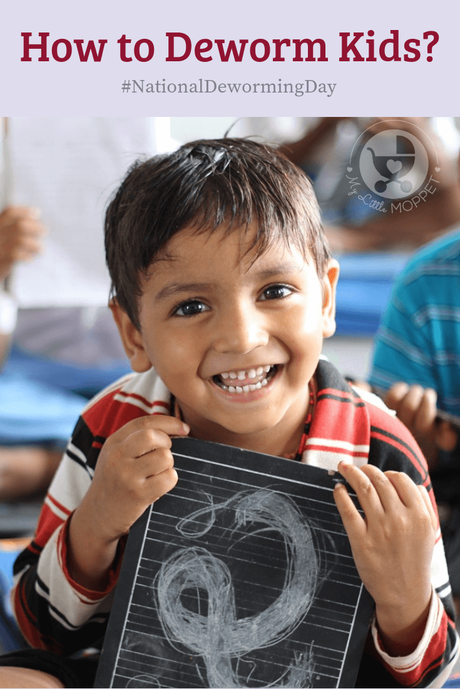
References:
Share32Tweet+1PinWhatsApp32 Shares